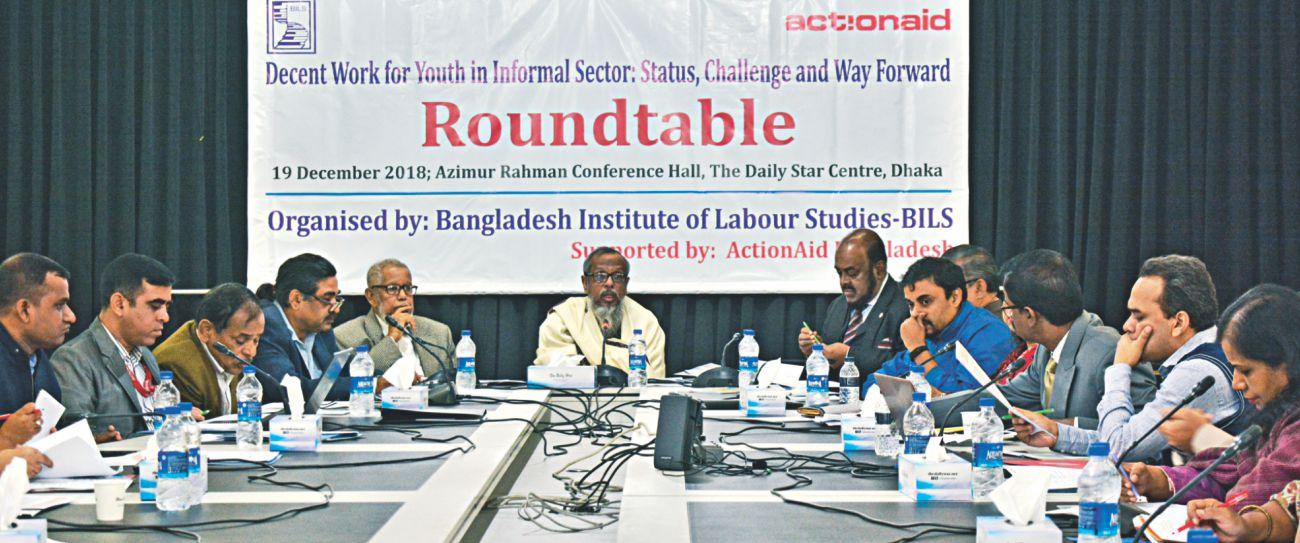Benefits elude workers with no job contracts

People employed in the informal sector are deprived of benefits and social protection for the absence of employment contracts and identity cards, says a study of the Bangladesh Institute of Labour Studies (BILS).
Some 88 percent workers of the sector do not get appointment letters and 82 percent do not have ID cards, according to the study—titled “Decent work of informal sector youths: status and way forward”—conducted with support from ActionAid Bangladesh.
The informal sector comprises work such as windshield cleaning at traffic lights or manual construction work, for which income is not declared, tax is not paid and components of which are not included in GDP computations.
Mostafiz Ahmed, associate professor of Jagannath University, presented the research at a roundtable organised by BILS at The Daily Star Centre in Dhaka yesterday. Mojibur Rahman Bhuiyan, vice chairman of BILS, chaired the session.
The study surveyed some 250 youths aged between 15 to 29 years employed in construction, automobile garages, beauty parlours, hotels and restaurant and online businesses in Dhaka, Chattogram and Satkhira districts.
Employing 86.2 percent of the workforce, the informal sector neither complies with labour laws nor promotes decent work, according to the study.
Decent work encompasses issues such as employment contracts, working time, rest and leave, welfare, social protection, freedom of association and collective bargaining and addresses workplace discrimination and harassment.
The sector provides no social protection like gratuity and provident funds and group insurance facility, according to the study.
It found workers facing vulnerabilities at workplaces for a lack of legal coverage. Some 61 percent of the youth reported the practice of job expulsions without prior notice.
Moreover, workers do not enjoy decent working hours, as nine out of every 10 youths work over eight hours a day.
The study also found wage discriminations in occupations. Some 60 percent earn up to Tk 10,000 every month while 40 percent less than Tk 6,000.
Some 98 percent of workers do not even know the minimum wage amount declared for their sectors.
Wage discrimination exists on a large scale for a lack of knowledge and education to negotiate salaries with employers, said Shafiqur Rahman, project manager of Women and Youth and Entrepreneurship and Employability.
Some 57.6 percent of workers do not always get festival bonuses while 86 percent claim to have never received attendance bonus. Most never get transport and lunch allowance and money for refreshment and training.
Child labour is still high in the sector as 30 percent of the youths reported of its existence. The study data shows the presence of child labour in 60 percent of the hotels and restaurants, followed by 54 percent of the automobile garages.
Though a lion's share of the workforce is employed in the informal sector, productivity there is very low, said Abdul Mazed, deputy director of National Skills Development Council.
Skills development training is a must to enhance productivity, he said.
Non compliance to labour laws in the informal sector is the main barrier towards protecting decent work, speakers opined at the event.
The study recommended raising awareness among youths on the decent work situation.
